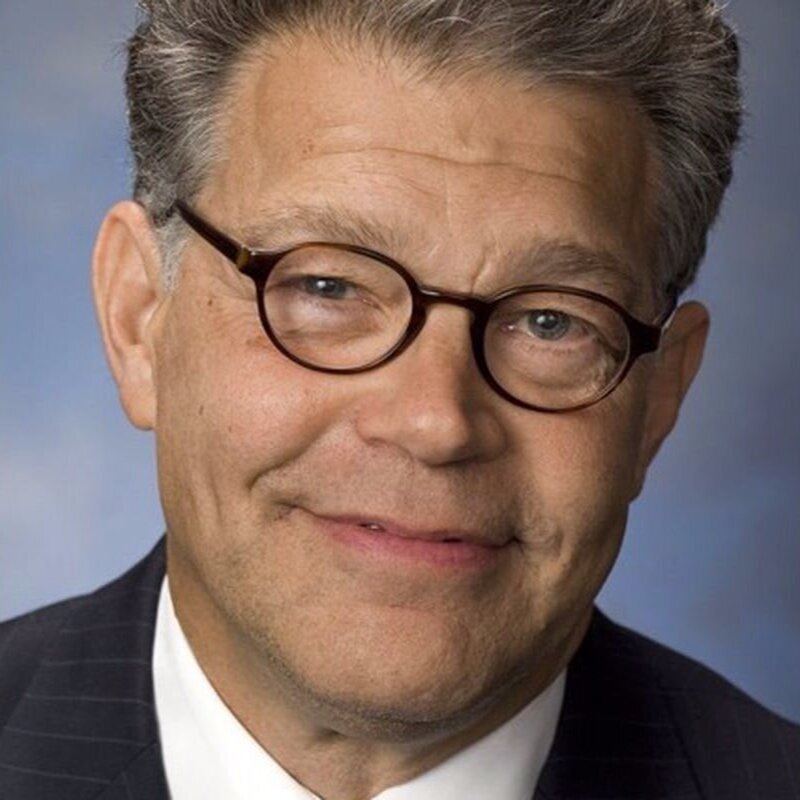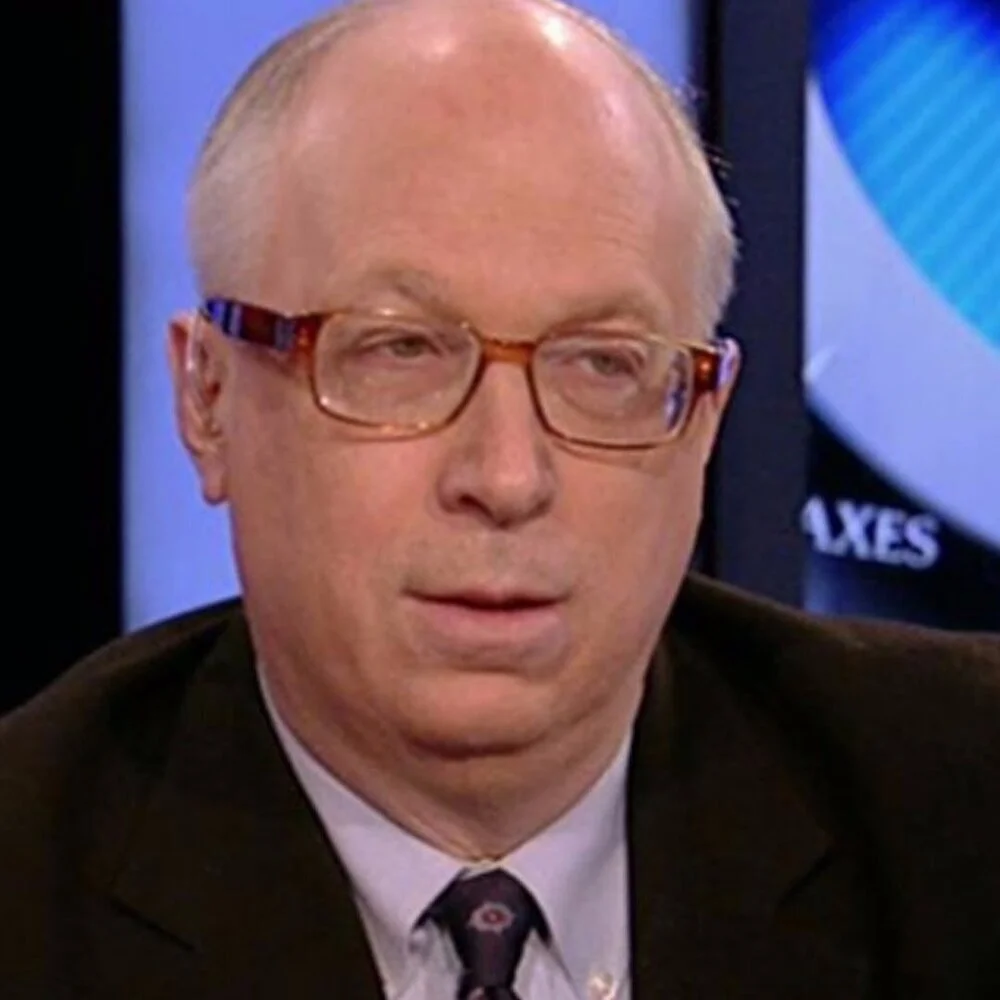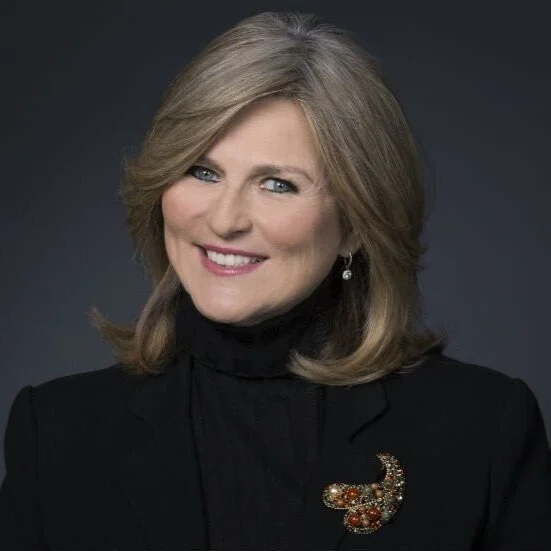
PAST EVENTS
2022 Midterm Election Panel
The Common Good breaks down the 2022 November Midterms with our latest panel of polling experts.
2022 Midterm Election Panel
with
Rachel Bitecofer, Charlie Cook, and Matthew Dowd
Moderated by John Harwood
Zoom, Thursday, November 3, 2022 5:00-6:00 pm EST
Every seat counts in the 2022 Midterms - and these elections will be consequential, one way or the other.
Midterm elections are usually costly to the party in the White House but this year may be different. Republicans should gain seats and power, but Democrats now look stronger than expected. What will move voters? Biden’s approval ratings, extreme Republican candidates in many races, immigration pressures at the border, the Dobbs decision on abortion, and even Trump’s legal battles may factor in. TCG has a assembled a great panel of experts to survey the playing field and share their predictions:
About the Speakers:
Rachel Bitecofer - Political scientist Rachel Bitecofer first gained recognition for predicting the 2018 midterm election “blue wave” and having one of the most accurate house seat predictions of that cycle. Her election analyses have also appeared on MSNBC and the New York Times.
Charlie Cook - Recurring election night analyst at CNN, CBS, and NBC, Charlie Cook is one of the leading experts on election and electoral politics. Among his many publications, Cook founded The Cook Political Report as an independent, non-partisan source to analyze elections, campaigns and American political trends. TCG is thrilled to welcome Cook back following our 2020 election panel.
Matthew Dowd - Political consultant Matthew Dowd was the chief strategist for the Bush-Cheney 2004 presidential campaign and is the current chief political analyst at ABC news.We are excited to have him back at TCG for another Midterm Election Panel!
John Harwood - Chief Washington Correspondent for CNBC and political writer for the New York Times, John Harwood joins us again as our moderator. In addition to CNBC, Harwood offers political analysis on NBC Nightly News and PBS’ Washington Week in Review, among other television and radio programs.
Midterm Election Panel
Monday, November 3rd 2022, 5:00-6:00 pm ET via Zoom
Watch here:
Post Election Roundup
After approximately two years, $14 billion (yes, you read that right) and countless hours of our attention, the 2020 campaign is finally coming to a close. While it seems Joe Biden may have won the presidency, as of writing this, several states are still counting ballots and President Trump is still contesting the results. Today, we’re bringing you a panel that truly meets this historic moment. Our all-star panel includes The Cook Report founder, Charlie Cook, Co-Founder of the Lincoln Project, Rick Wilson, and former Senator and SNL writer Al Franken, with award-winning journalist for The Washington Post, Jonathan Capehart, as our moderator.
Post-Election Recap
Happy Friday! Well, we (almost) made it. After approximately two years, $14 billion (yes, you read that right) and countless hours of our attention, the 2020 campaign is finally coming to a close. While it seems Joe Biden may have won the presidency, as of writing this, several states are still counting ballots and President Trump is still contesting the results. Today, we’re bringing you a panel that truly meets this historic moment. Our all-star panel includes The Cook Report founder, Charlie Cook, Co-Founder of the Lincoln Project, Rick Wilson, and former Senator and SNL writer Al Franken, with award-winning journalist for The Washington Post, Jonathan Capehart, as our moderator.
“PUT A FORK IN IT”, Charlie Cook
Reassuring many, Charlie made no qualms about it - Biden won the election. While each media organization has a specific, sometimes arduous set of criteria that they must meet before calling a state (or an election for that matter), political analysts don’t, and Charlie coolly pointed out that the uncounted ballots are disproportionately from Biden-friendly districts and therefore, the only logical conclusion is a Joe Biden victory.
Al Franken, seeming to speak for many, complained that inaccurate polling made for a terrible election night.
While Charlie agreed that it was the “strangest election I’d ever seen,” he reminded us that the end result was not surprising; rather, it was the route taken that was so weird.
Presidential polls got the degree wrong, but the direction right and getting the degree wrong has implications for down ballot voting, not so much for the Electoral College, because most states are winner take all.
In summary, there was lots of party line voting, with Maine being the only state in which the Presidency and the Senate went in opposing directions (for now - looking at you Georgia).
In addition to the hyperpartisanship, there was also tremendous voter turnout. Charlie credits targeted voter registration as playing an important role.
Al Franken wasn’t having any of the sympathy for pollsters, and neither was Chris Rock apparently. Al told us about a conversation he had with Chris (we’re close like that), in which Chris described noted pollster, Nate Silver, as the closer (baseball) who the manager really likes, but always gives up a home run. Fair or not, we invite Chris to elaborate on a panel in the future.
Al added that he was unsure how the presidential election would impact the TWO senate runoff races in Georgia, but that expects an “inky,” weird period between now and then.
NOW FOR THE SURPRISE
Republicans were expected to be blown out in House races, especially in suburbs, but instead, Republicans actually gained seats.
Rick Wilson and Charlie Cook reminded us of a few factors: Many of these seats were moderate to rightward leaning in the first place, with Trump on the ballot (as opposed to 2018), voters could vote against Trump, while supporting their Congressperson, and a lot of the Democratic messaging didn’t help either.
“Defund The Police” - Although a misnomer, resonated with suburban voters who were fearful of civil unrest, moving them back to Trump.
Packing The Court - Similarly off-putting and Republicans seized.
Abigail Spanberger (VA-7) pleaded with fellow Dems to never use the word Socialism again.
More Conor Lambs, fewer AOCs if you want these moderate districts.
Green New Deal - Has become pejoritve to many, symbolizing big government and threatening older industries.
Al Franken agreed that we need more nuanced language to frame the debate about climate change, noting that most Americans recognize the scale of the threat it poses and that our response can really be a Win/Win.
CHARLIE COOK ISN’T INTO “TRUMP PORN” (new term for us)
Therefore he didn’t watch Trump’s press conference where he simultaneously claimed voter fraud and touted the GOP’s electoral victories.
Rick joined us a few minutes late as he was trying to “land the plane” that is our democracy. Rick confidentently described the next few months as such:
Donald will act like a child and do dangerous, dumb things.
*Not all children are like this*
Biden will put his hand on that bible in a covid safe ceremony and be sworn in. “It’s over except for the MAGA world’s crying.”
Litigation: At the very least, Trump will make noise with the hopes of reaching the Supreme Court and although his legal team is led by Guiliani and most constitutional lawyers think their case is spurious, The Lincoln Project is responding with their own legal team.
The Lincoln Project cannot work directly with the Biden Campaign by law. However, they anticipated this moment, so are well-prepared.
Attorney Marc Elias is also all over this, as Al Franken adds that the fight is large.
FUTURE OF THE GOP?
Rick quoted his friend and fellow Lincoln Project Co-Founder, Steve Schmidt, describing the GOP as a “Dwarf star” that gets progressively smaller and crazier (these guys love and are great with analogies)
It’s hard to scale when you have a “dear leader” model and then your “dear leader” loses. Moreover, Rick contends that the GOP is hopelessly broken and cannot be fixed. The GOP needs “a hard reconciliation with the country and with the culture.”
However, Rick does believe the country needs a center-right party, but for now he is
focused exclusively on beating Trump and then Trumpism, or in other words, to paraphrase, they “killed the big zombie, and are now going after the smaller zombies, the Ron Johnsons, Marcos and Hawleys.” The Lincoln Project will remain a political organization to fight them.
Al Franken playful interrupted Rick to remind him that the soul of the GOP that he is fighting for was never actually there, continuing with “Where were you in 2004? They’re all zombies”
Rick mostly agreed.
Q&A
Judith Miller
Trump got half of this country, his die-hards aren’t going away. Were people voting against Trump? What will it take for Trump’s supporters to break with him?
AF: Two information sources. Conservative media machine. No easy solution.
CC: Ideological silos on both sides - we need common news, common thread. This whole project doesn’t work without it.
RW: Roger Ailes - love him or hate him - he’s a television genius.
Hermetic bubble of Fox and talk radio that unifies and energizes the party completely, and then Social media exponentially amplifies the message of crazy people.
When there’s an “agenda” behind everything, nothing can’t be substantiated and we can’t function as a democracy.
Panel agrees that we have to rethink anti-trust law.
Tools are morally agnostic until they are not.
What happened in Kentucky and SC?
CC: Places in the south that are changing - some that aren’t
Changing States
Sunbelt - NC, AZ, CO TX, GA are following VA
Jamie Harrison was a great candidate, but he got a lot of votes because Lindsay proved to a fake, untrustworthy politician.
Law of diminishing returns on campaign spending. After what’s really needed, can actually be hurtful.
South Carolina is going to be South Carolina. Plausible to get close, but those last couple of points are hard.
States that Aren’t
LA, MS, AK, TN, AL KY, SC
WATCH:
Charlie Cook is considered one of the nation’s leading authorities on American politics and U.S. elections. He is the editor and publisher of the Cook Political Report which serves as one of the leading sites and informational platforms for election predictions and results in the United States. He is also a political analyst for NBC News and National Journal.
Since the 1984 US presidential election, Cook has provided election night commentary for various television networks. The Wall Street Journal has referred to Cook as “the Picasso of election analysis” and the Washington Post has called him "perhaps the best non-partisan tracker of Congressional races.”
In 2010, Charlie was the co-recipient of the American Political Science Association’s prestigious Carey McWilliams award to honor “a major journalistic contribution to our understanding of politics."
Rick Wilson is a longtime Republican political strategist, infamous negative ad-maker, and commentator. He has successfully worked for numerous GOP campaigns including, presidential, senate, mayoral and gubernatorial. Since 2015, he's been a leading conservative critic of Donald Trump. He went on to co-found The Lincoln Project, a group of Republican and conservative leaders who are critical and oppose Donald Trump.
A pioneer of and leader in the Never-Trump movement, Wilson released the best-selling Everything Trump Touches Dies in August 2018. In the book, Wilson brings his dark humor and biting analysis to confront the absurdity of American politics in the Age of Trump. He mercilessly takes down Trump and exposes the damage Trump has done to the country, to the Republican Party Wilson served for decades, and to the conservative movement that has abandoned its principles for the worst president in American history.
Wilson writes several opinion and columns for newspapers like The Daily Beast, Politico, and The Federalist.
Al Franken is an American comedian, politician, media personality, and author who served as a United States senator from Minnesota. He gained notoriety for his work on Saturday Night Live.
After leaving SNL, Franken went on to become a political activist including hosting a radio show, offering commentary and insights and writing several books. He supported military members and often worked on entertaining soldiers. He decided to run for the Senate and win. While in the Senate he supported same-sex marriage, abortion rights, and gun control. In addition, Franken was active in health care reform and fought to repeal Don't Ask, Don't Tell.
After leaving the Senate, he now hosts his own radio program The Al Franken Show on SeriousXM which covers global affairs, politics, the 2020 presidential election, and entertainment.
Jonathan Capehart is an American journalist and television personality. He writes for The Washington Post's PostPartisan blog and is a contributor for MSNBC.
Pulitzer Prize winning journalist, Capehart was a researcher for NBC's The Today Show. Subsequently, he worked for the New York Daily News (NYDN), serving as a member of its editorial board from 1993 to 2000. At the time of his hiring, Capehart was youngest ever member of that newspaper's editorial board. In 2000, he left the NYDN to work at Bloomberg News. Afterward, he advised and wrote speeches for Michael Bloomberg, during Bloomberg's 2001 run for the mayoralty of New York City.
He joined the staff of The Washington Post as a journalist and member of the editorial board in 2007. He continues in that capacity and is a contributing commentator for MSNBC. He also hosts the Cape Up podcast, in which he talks to newsmakers about race, religion, age, gender, and cultural identity in politics.
Recap: Final Presidential Debate Panel
After a tumultuous first debate, the final face off will be the last, perhaps best, chance for President Trump or Vice President Biden to tell the American people why he should be elected the next president of the United States. Can we expect a serious discussion of their policy differences or another breakdown in decorum?
Whatever happens, these confrontations do shape the national conversation and the upcoming election -- and The Common Good had the extraordinary panel of political experts to analyze the impact on voters, who are already starting to head to the polls. Join ace strategist @PaulBegala and election outcome seer @RachelBitecofer. Moderated by Emmy nominated journalist @CynthiaMcFadden.
In keeping with the theme and general ethos of 2020, we had a few last-minute changes. Fortunately, the inimitable author, strategist and pollster Doug Schoen stepped in, along with the razor-sharp election whisperer, Rachel Bitecofer, as well as the brilliant, Emmy award-winning journalist, Cynthia McFadden, as moderator. And we’re lucky they did, as there’s plenty to unpack from the final (*phew*) presidential debate.
McFadden: Forget the formalities - Was there a winner?
Schoen contends that while Trump showed some much-needed discipline and restraint, ultimately Biden did what he needed to do and simply “held up.” And although the race might tighten a bit, the fundamental dynamics of the race won’t significantly change. Trump did the best he could given the facts on the ground, specifically the negative fallout of the pandemic. Ultimately, the candidates mostly spoke to their respective base, with Biden reaching out a bit to all Americans, but, notably, as a proud Democrat. With 45 million votes already, many experts are predicting record turnout for this election. Contrary to popular belief, however, Doug doesn’t see evidence that more turnout will invariably benefit Dems; and while Biden still has a clear advantage, swing states are closer than the overall popular vote.
Rachel, on the hand, said there probably wasn’t a winner of last night’s debate, just a loser - the American people. That was right before she soberly reminded us that our democracy is off the rails, that our president lies constantly and about important things, and that this enormous departure from American presidential history and norms has proven challenging for the media to cover in the face of the need for journalistic impartiality. While Trump was the consensus loser from the first debate, Rachel notes that this debate was mostly unnoteworthy. Partisans saw what they wanted to see – either a Trump win or a Biden win. Therefore, pure independents should be asked, but Rachel asserts they mostly don’t exist.
Are there still Undecided voters? (very few) What about Independent voters? (not really)
According to Doug, at this point in the race, Undecided Voters are low-information voters who feel alienated by the current system. They represent about 6% or 7% of voters.
Rachel argues that, based on her research, Independents aren’t actually independent. Actually, they almost always “lean” one way or the other (just like us, except they’re not political junkies). Moreover, Independents often are just as settled as partisans, they’re just more embarrassed about their partisanship.
Warning: Entering THE WEEDS
Rachel describes a theory that postulates: In our polarized era, Independents have an anti-status quo bias, meaning that the status quo always sucks for these voters. Therefore, they’re likely to break away from the current status quo. In this case, that would mean Independents will break in favor of the Democrats. In fact, per Rachel, the pandemic is likely to enhance the traditional 55%/44% vote for change by Independents.
Check Out Rachel’s article https://newrepublic.com/article/156402/hate-ballot
Cynthia brings up voter Trust, citing “Democracy is like Tinkerbell; once you stop believing she dies.”
Both Doug and Rachel are worried about the integrity of election and health of our democracy; however, they diverge slightly on the causes. While Doug focused on foreign interference in our election; Rachel emphasizes the institutional erosion - in the Senate, in the lack of government accountability and responsiveness, and in Trump’s open warfare on the election itself.
By the way, this warfare isn’t just Trump being Trump. Rachel also voiced concern about RNC and DOJ coordination. She paints the scenario whereby the conservative media machine declares Trump ahead on election day voting - knowing that Dems are more likely to vote by mail, Republicans in person - and then they launch a bevy of lawsuits to discredit mail-in votes that have yet to be counted.
Additional Thoughts from our Panel
Flash point? Biden’s comments on oil - specifically that we should transition away from it - could provide Trump with an opening to highlight the radical approach of The Green New Deal and Biden’s perceived equivocation on fracking.
Audience Question: Will it hurt Biden in PA?
Doug said Trump should wield that comment in a hyper-targeted way in Pennsylvania.
Rachel said those comments are more important in Texas, whose economy is more reliant on oil.
Biden has already walked it back and pivoted to ending subsidies for oil, which makes more political and practical sense. Although Trump has footage and will use it.
Switching to forecasting for Congressional Races
Rachel has the following states flipping Senate races to Dems: Arizona to Mark Kelly, Colorado to John Hickenlooper, Maine to Sarah Gideon, North Carolina probably to Cal Cunningham (very close, but early African American turnout is high).
There are tantalizing possible Tossups for Dems: Iowa to Theresa Greenfield, Alaska to Al Gross, South Carolina to Jaime Harrison, Kansas to Barbara Bollier.
But not Kentucky – White, low college-educated electorate
RE: Trump’s claim that Rs take the house – Trumps makes a lot of stuff up. No evidence, but hasn’t stopped him before. He’s just trying to keep people optimistic.
Rachel said just as there are best practices with pandemic response, there are best practices for electioneering – Base mobilizing being one of them, and usually every nominee comes out of the primary and repositions toward the center in the general election campaign.
However, Trump does things that are antithetical to winning elections:
Trump is still running a base strategy – worked last time, but it frustrates his handlers that they can’t get him to change course. He did tone down his temperament.
Final points: Rachel’s Minimal Effects Theory – Presidential campaigns don’t have a lot of room to influence voters in a hyper-partisan political landscape.
Trump has tamped down his voter erosion, but his first debate performance hurt the Senate Republicans. Trump is is seen as bad on race, empathy, police violence – not serious, empathetic voice. He’s adding to the criminality myth of black male. However, he has a bolder, better argument than Criminal Justice Reform – letting them out of prison. It’s a challenge for Trump as an incumbent to label Biden as the insider.
Rachel makes this point clear - Republicans are great at messaging, Dems struggle – they too often speak to the head, not the gut.
WATCH:
Rachel Bitecofer
A true election whisperer, Dr. Bitecofer received national acclaim for her prediction of the results of the 2018 United States midterm elections more closely than most other forecasters. She has continuously helped to predict and analyze elections and data making her one of the most sought after political scientists in the country.
She continuously appears on tv, including CNN, MSNCB, along with media outlets like NYT, NPR and the Washington Post.
Dr. Bitecofer is famous for her main thesis that modern elections are not decided by the swing vote, but rather negative partisanship, which prioritizes defeating the other side over any specific policy objective. Under her theory, shifts in voter turnout decide everything, and the "swing" mainly comes from whether voters decide to vote at all rather than deciding who to vote for.
Doug Schoen has been one of the most influential Democratic campaign consultants for over thirty years. A founding partner and principal strategist for Penn, Schoen & Berland, he is widely recognized as one of the co-inventors of overnight polling.
Schoen was named Pollster of the Year in 1996 by the American Association of Political Consultants for his contributions to the President Bill Clinton reelection campaign.
His political clients include New York City Mayor Michael Bloomberg and Indiana Governor Evan Bayh, and his corporate clients include AOL Time Warner, Procter & Gamble and AT&T. Internationally, he has worked for the heads of states of over 15 countries, including British Prime Minister Tony Blair, Italian Prime Minister Silvio Berlusconi, and three Israeli Prime Ministers.
He is the author of multiple books, most recently publishing, The End of Democracy. He is a regular contributor to the Wall Street Journal, the Washington Post and various other newspaper and online publications. He is also a Fox News Contributor, making appearances on various news programs several times a week.
Cynthia McFadden was named co-anchor of ABC News' "Nightline" in October 2005. She joined ABC News in February 1994 as the network's legal correspondent. Two years later she was named a correspondent for "PrimeTime," and was made a co-anchor of the broadcast in 2004.
McFadden took an exclusive and rare look inside the new Ku Klux Klan and covered the tragic school shooting in Newtown, Conn. She has reported extensively from Africa and India on the HIV-AIDS pandemic; from China on the environmental costs of that country's rapid economic growth; and on the illegal sale of women and young girls into sexual slavery. Her investigation into horrific human rights abuses in several Mexican mental hospitals led to a major overhaul of that government's institutions for the mentally ill.
McFadden led the first investigation by a major news organization into one of America's darkest secrets, the forced sterilization of 60,000 to 100,000 American citizens; tracked five accused murderers to their hiding places in El Salvador, where she interviewed two of them; and investigated the use of female contraceptives to treat convicted rapists.
She left ABC in 2014 and is currently the senior legal and investigative correspondent for NBC News. She has won a Peabody and an Emmy, along with countless other awards.
The Common Good has been hosting events since 2006 that cover important issues of today, highlighting speakers who have worked to bolster our democracy and can provide great insight on the issues that matter.

















